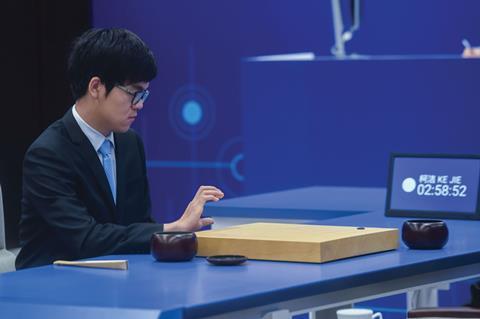The litigation community must be ready to work with AI

The artificial intelligence (AI) revolution has arrived in the legal sector and this year it is heading for UK litigation.
Why litigation and why now?
Huge strides have been made using AI in the profession, especially in the corporate law sector. For example, the lawyer-trained AI Luminance is expected to halve the time spent on corporate due diligence.
Attention is now turning to the litigation sector. According to a Consilio survey, outside of e-discovery, litigation analysis is predicted by legal professionals to be the second most heavily impacted legal task affected by AI.

Key current drivers for AI in UK litigation are:
Managing data and litigation costs
‘Big data’ and disclosure costs in litigation have grown exponentially. According to master of the rolls Sir Terence Etherton (who established a Disclosure Working Group last year to develop proposals for improving the civil litigation disclosure regime): ‘It is imperative that our disclosure system is, and is seen to be, highly efficient and flexible reflecting developments in technology.’
More for less
Litigation general counsel face Professor Richard Susskind’s ‘more-for-less challenge’ of doing more higher-risk work with a smaller legal team and lower budget. This pressure has become acute, especially for UK businesses, because of the increase in litigation resulting from the 2007 financial crisis and Brexit.
Judicial support
The use of predictive coding (a type of machine-learning AI) for disclosure was endorsed by the High Court in the seminal 2016 decisions Pyrrho Investments Ltd v MWB Property Ltd and David Brown v BCA Trading.
Current uses
AI refers to technology performing processes that require human intelligence. Key uses of AI in litigation include:
Machine-learning AI
Disclosure can be critical to the outcome of a case. Machine-learning AI is used to facilitate reviewing documents for disclosure based on algorithms trained by subject matter experts in the legal team. It enables litigators to find relevant documents faster, without reviewing the entire dataset.
Predictive AI
A 2016 study by University College London and the universities of Sheffield and Pennsylvania developed AI replicating judges’ reasoning in European Court of Human Rights judgments. The AI could predict the outcome of cases with a 79% success rate.
Using predictive AI for UK cases is in its infancy, but increasingly it could guide litigators’ advice to clients on case outcomes and strategy, and assist third-party litigation funders with assessing the risk-reward ‘sweet spot’ of cases.
Analytic AI
Premonition, the ‘world’s largest litigation database’, uses AI to analyse various data, including the win rate of lawyers against different judges and success rates for legal submissions. Users of Premonition include general counsel, law firms and hedge fund analysts.
Future possibilities
We have shortlisted three potential future uses of AI in UK litigation:
Litigation strategy AI
Last year, Google’s AlphaGo AI beat the world champion at the game of Go. We could see AI beating humans at the ‘litigation game’.
An AI system which could ‘beat’ other legal teams at litigation strategy in cases based on data and input from litigators would be a serious advantage in the courtroom.

‘Columbo’ AI
There are AI systems which can identify anomalies and trends across colossal volumes of data. If this could be applied effectively to witness, expert and disclosure evidence in litigation it could facilitate smarter, quicker finds to ‘crack a case’.
AI courtrooms
AI could drive future modernisation in UK courts. For example, Chinese courts are piloting AI which collates cases for judges to refer to when drafting judgments and speech-recognition AI which produces real-time transcripts of hearings. Meanwhile, a US study has developed AI which can identify ‘deception’ in the courtroom.
Key considerations
Is AI ‘smart’ for litigation?
AI which can function like the human brain has not yet been developed. It cannot factor emotional intelligence, common sense, instinct or practical experience of cases, counsel and judges into decisions like humans. Fundamentally, do litigants want cases to be determined by a ‘perfect’ AI judge, or does justice necessarily entail conscious decision-making by one’s human peers?
AI can however replicate certain human behaviours across gargantuan amounts of data more quickly and accurately than humans.
AI is therefore best deployed as a ‘support’ instead of ‘substitute’ for human decisions. Litigators can apply the emotional, strategic, practical and other aspects of ‘intellect’ AI lacks, and AI could provide the superhuman speed and scale to handle the big data in cases. Designed well and responsibly used, AI could be a powerful teammate in litigation.
What if AI gets it wrong?
If AI gets it wrong, who is responsible? This debate is currently unfolding for driverless AI cars.
Like humans, AI is not infallible. AI is only as good as the humans who train it and the data it is fed. There is no panacea or way to predict all things that could go wrong with AI in litigation. However, greater human oversight offers hope. Similar to the management of the possibility of human mistakes in litigation, human validation and supervision of AI can mitigate the risks.
Conclusion
AI holds great promise for litigation. However, careful consideration of how and when it is used is necessary.
AI is not perfect. There are questions raised by the use of AI – not just those highlighted above – but the concerns are reasons to cast a responsible eye over and to keep improving AI, not an excuse not to use it.
The issues also necessitate a symbiotic collaborative relationship between AI and the litigation community. Joining forces with AI could empower judges, litigators and litigation funders to deliver a smarter, more efficient service for court users.
The litigation community ought to swim with, not against, the incoming AI tide to maintain the UK’s position as a premier jurisdiction for litigation. This could be a breakthrough year for AI in litigation, if we want it to be.
Damian Taylor is a partner and Natalie Osafo an associate at Slaughter and May. Damian is a committee member of the London Solicitors Litigation Association, and Natalie is President of the Junior London Solicitors Litigation Association.































No comments yet